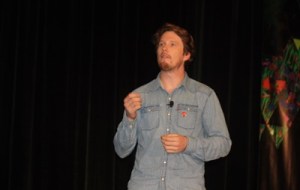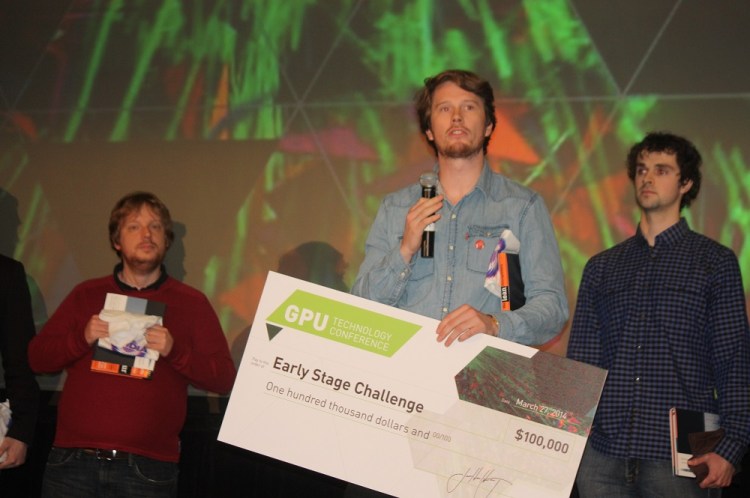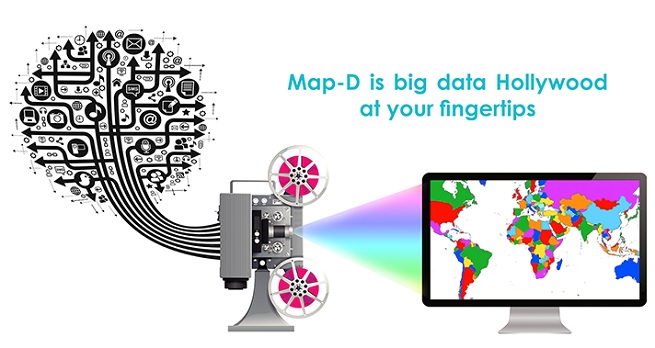Map-D hopes to disrupt the database market with a software product that was designed for the era of big data. It taps the power of the modern graphics processing unit (GPU), and the results can be hundreds or thousands of times faster than conventional database queries. That promise was enough to win the company the $100,000 grand prize at Nvidia’s Emerging Companies Summit.
 Map-D beat out a bunch of applicants who gave short talks in front of a panel of expert judges, including Nvidia’s head of business development, Jeff Herbst. The Early Stage Contest has been growing every year, and this time Nvidia dished out more money to the winner, with no strings attached. Such contests are increasingly common among corporate investors as they seek to seed future customers of their technology.
Map-D beat out a bunch of applicants who gave short talks in front of a panel of expert judges, including Nvidia’s head of business development, Jeff Herbst. The Early Stage Contest has been growing every year, and this time Nvidia dished out more money to the winner, with no strings attached. Such contests are increasingly common among corporate investors as they seek to seed future customers of their technology.
Thomas Graham, chief executive of Map-D in Cambridge, Mass., said in an interview that his company has designed a fast in-memory SQL database that works in real time and is responsive because it takes advantage of the parallel processing cores built into GPUs, such as the graphics chips made by Nvidia or Intel’s “many core” processors. By contrast, other database makers are trying to squeeze a little more performance out of a large central processing unit (CPU), which is already overtaxed.
“The biggest problem is that the data is too big” and too fast to query in real-time on other databases,” Graham said. “We can use brute force by taking advantage of all of the GPU’s cores. We can run a query in milliseconds using massive parallelism of the GPU cores.”
In the world of big data analytics, Hadoop is like an old 35 millimeter disposable camera. Sometimes the results are good, but you will wait hours or days to develop the film and then realize you missed the shot. The in-memory big data platform that Map-D has built is more like a digital camera that shows you instant results. It lets you visualize the data as the results come in, giving you the big picture within milliseconds.
“This is the kind of company that, if they execute, one of the big companies is going to acquire for a lot of money,” said Patrick Moorhead, analyst at market researcher Moor Insights & Strategy and one of the judges of the Emerging Companies Summit contest.
Herbst said the winner would be the one with the best commercial prospects for the future.
“We’re not looking for research projects today,” he said.
Scott Budman, moderator of the session and a tech reporter at NBC Bay Area, joked that the winner would be acquired by Facebook for $2 billion. That got some laughs, but he noted that Oculus VR appeared on stage last year and made its own pitch in the Early Stage Contest. Facebook bought it on Tuesday for $2 billion.
Map-D hopes to run its native analytics and data visualization on servers, laptops, and even smartphones. Map-D scales to multiple nodes (where a node is an eight-GPU system) and multiple terabytes of memory bandwidth per node. This lets users search through a ton of tweets, produce heatmap results, and identify trends with ease. It can help Facebook analyze every single status update in real-time.
But first, the company needs to build its product and get it out on the market. Graham said the Cambridge, Mass.-based company has a handful of founders and will soon be adding some interns. It plans to raise a round of funding.
“There is no one else in the GPU database space, so we’re up against the CPU database companies,” Graham said. “We are building this database from scratch.”
VentureBeat's mission is to be a digital town square for technical decision-makers to gain knowledge about transformative enterprise technology and transact. Learn More



![Reblog this post [with Zemanta]](http://img.zemanta.com/reblog_e.png?x-id=e9324456-e4be-4e57-af04-9463bdfea5dc)
